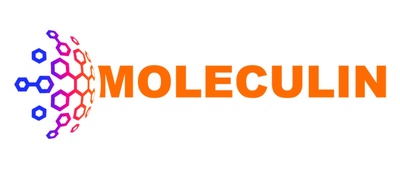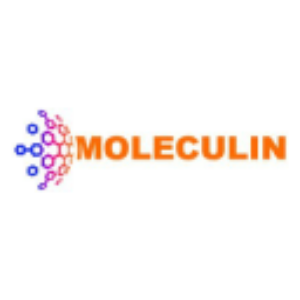Additional Independent Research Further Supports Glucose Metabolism as Important COVID-19 Target
Moleculin Biotech, Inc. (Nasdaq: MBRX) announced a study from the University of Campinas, Brazil, revealing that elevated glucose levels support SARS-CoV-2 infection. The research indicates that inhibiting glycolysis with 2-deoxy-D-glucose (2-DG) can significantly reduce viral load in vitro. CEO Walter Klemp emphasized the importance of targeting glucose metabolism in COVID-19 treatment and highlighted WP1122's potential as an antimetabolite prodrug. The findings align with previous studies linking glycolysis to SARS-CoV-2 replication, underscoring the significance of WP1122's unique delivery system.
- Independent research supports targeting glucose metabolism for treating COVID-19.
- 2-DG demonstrated effective viral load reduction in vitro.
- WP1122 shows promise in enhancing drug properties and efficacy.
- 2-DG's drug-like properties are limited, potentially hindering its effectiveness in vivo.
HOUSTON, July 29, 2020 /PRNewswire/ -- Moleculin Biotech, Inc., (Nasdaq: MBRX) ("Moleculin" or the "Company"), a clinical stage pharmaceutical company with a broad portfolio of drug candidates targeting highly resistant tumors and viruses, today announced that a recent publication by an independent research team at the University of Campinas in São Paulo, Brazil demonstrated that SARS-CoV-2 infection is supported by elevated glucose levels and that inhibition of glycolysis with 2-deoxy-D-glucose ("2-DG") effectively eliminated viral load in vitro.
The paper was presented in Cell Metabolism journal online (Codo et al., Elevated Glucose Levels Favor SARS-CoV-2 Infection and Monocyte Response through a HIF-1a/Glycolysis-Dependent Axis, Cell Metabolism (2020)), https://doi.org/10.1016/j.cmet.2020.07.007) after peer-review and reports the findings of a research team at the Laboratory of Immunometabolism, Department of Genetics, Evolution, Microbiology and Immunology, Institute of Biology, University of Campinas, Campinas, São Paulo, Brazil.
"We believe these findings are an important additional independent support of our approach focused on targeting glucose metabolism to control SARS-CoV-2 and support our efforts to develop an antimetabolite prodrug such as WP1122 as a potential new treatment for COVID-19," commented Walter Klemp, Chairman and CEO of Moleculin. "2-DG is the active ingredient released from WP1122 after oral administration, and accordingly, we believe that dual targeting of both glycolysis and glycosylation contributes to observed biological activity. While this paper provides a deeper understanding of how important glycolysis is to COVID-19 and demonstrates in vitro activity of 2-DG, we believe the implications for developing 2-DG alone as an effective new therapy would be limited due to the lack of its drug-like properties. However, that's where WP1122 shows promise. Our animal data shows that drug concentration and tissue/organ distribution of 2-DG are significantly enhanced when 2-DG is delivered via WP1122."
This recently published data also further supports the findings published in the scientific journal, Nature (Bojkova, D. et al. Proteomics of SARS-CoV-2-infected host cells reveals therapy targets, Nature https://doi.org/10.1038/s41586-020-2332-7 2020), which reports that one of the therapeutic targets in SARS-CoV-2 is glycolysis. This work performed by an independent research team at the Göethe-University of Frankfurt showed that targeting glycolysis with 2-DG stopped replication of SARS CoV-2 in vitro. These results are consistent with previous research reports demonstrating the antiviral activities of 2-DG in other viruses and with the Company's own antiviral testing of WP1122. Notwithstanding the available preclinical data, the Company believes that, without the benefit of WP1122's prodrug structure, 2-DG's rapid metabolism and limited drug-like properties prevent it from being sufficiently effective in vivo and that in vivo testing of WP1122 may make its benefits more apparent.
About Moleculin Biotech, Inc.
Moleculin Biotech, Inc. is a clinical stage pharmaceutical company focused on the development of a broad portfolio of oncology drug candidates for the treatment of highly resistant tumors and viruses. The Company's clinical stage drugs are: Annamycin, a Next Generation Anthracycline, designed to avoid multidrug resistance mechanisms with little to no cardiotoxicity, being studied for the treatment of relapsed or refractory acute myeloid leukemia, more commonly referred to as AML; WP1066, an Immune/Transcription Modulator capable of inhibiting p-STAT3 and other oncogenic transcription factors while also stimulating a natural immune response, being studied for brain tumors, pancreatic cancer and hematologic malignancies; and WP1220, an analog to WP1066, being studied for the topical treatment of cutaneous T-cell lymphoma. Moleculin is also engaged in preclinical development of additional drug candidates, including additional Immune/Transcription Modulators, as well as compounds capable of Metabolism/Glycosylation Inhibition, such as WP1122. Moleculin has the exclusive worldwide rights (subject to certain territories for which it has issued sublicenses) to all of the above technologies.
For more information about the Company, please visit http://www.moleculin.com.
Forward-Looking Statements
Some of the statements in this release are forward-looking statements within the meaning of Section 27A of the Securities Act of 1933, Section 21E of the Securities Exchange Act of 1934 and the Private Securities Litigation Reform Act of 1995, which involve risks and uncertainties. Forward-looking statements in this press release include, without limitation, the ability of WP1122 to be shown safe and effective for the treatment of COVID-19. Although Moleculin believes that the expectations reflected in such forward-looking statements are reasonable as of the date made, expectations may prove to have been materially different from the results expressed or implied by such forward-looking statements. Moleculin Biotech has attempted to identify forward-looking statements by terminology including ''believes,'' ''estimates,'' ''anticipates,'' ''expects,'' ''plans,'' ''projects,'' ''intends,'' ''potential,'' ''may,'' ''could,'' ''might,'' ''will,'' ''should,'' ''approximately'' or other words that convey uncertainty of future events or outcomes to identify these forward-looking statements. These statements are only predictions and involve known and unknown risks, uncertainties, and other factors, including those discussed under Item 1A. "Risk Factors" in our most recently filed Form 10-K filed with the Securities and Exchange Commission ("SEC") and updated from time to time in our Form 10-Q filings and in our other public filings with the SEC. Any forward-looking statements contained in this release speak only as of its date. We undertake no obligation to update any forward-looking statements contained in this release to reflect events or circumstances occurring after its date or to reflect the occurrence of unanticipated events.
Contacts
James Salierno / Carol Ruth
The Ruth Group
646-536-7028 / 7000
jsalierno@theruthgroup.com
cruth@theruthgroup.com
![]() View original content to download multimedia:http://www.prnewswire.com/news-releases/additional-independent-research-further-supports-glucose-metabolism-as-important-covid-19-target-301101886.html
View original content to download multimedia:http://www.prnewswire.com/news-releases/additional-independent-research-further-supports-glucose-metabolism-as-important-covid-19-target-301101886.html
SOURCE Moleculin Biotech, Inc.
FAQ
What did the recent research from University of Campinas reveal about SARS-CoV-2?
How is Moleculin Biotech targeting COVID-19 with its drug WP1122?
What are the implications of the study for Moleculin Biotech's stock (MBRX)?
Why is WP1122 considered more effective than 2-DG?








